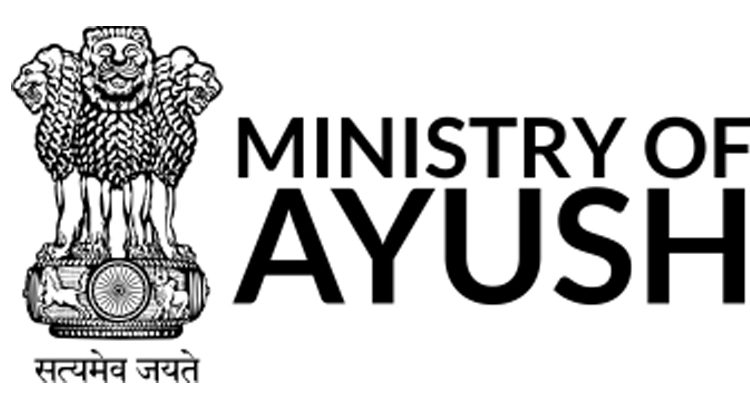The Directorate of Ayurveda is a government agency in India dedicated to the promotion, development, and regulation of Ayurveda, one of the world’s oldest holistic healing systems. Operating under the Ministry of AYUSH (which stands for Ayurveda, Yoga and Naturopathy, Unani, Siddha, and Homeopathy), the Directorate of Ayurveda works to advance Ayurveda through research, policy, education, and healthcare services.

Objectives of the Directorate of Ayurveda
The directorate aims to:
- Promote Ayurveda as a recognized, safe, and effective health care system.
- Standardize Ayurvedic education and practice across India.
- Ensure the quality and safety of Ayurvedic medicines and treatments.
- Support research and development to validate Ayurvedic practices scientifically.
- Integrate Ayurveda with mainstream healthcare for comprehensive wellness solutions.
Key Functions of the Directorate of Ayurveda
a. Regulation and Quality Standards
- Setting Standards: It establishes standards for Ayurvedic drugs, practices, and treatments to ensure safety and efficacy.
- Certification and Licensing: The directorate oversees the certification and licensing of Ayurvedic practitioners, hospitals, and drug manufacturers.
- Quality Control of Medicines: It monitors the quality of Ayurvedic medicines by regulating production, conducting inspections, and setting safety guidelines for manufacturers.
b. Research and Development
- Clinical and Pharmacological Research: It funds and conducts research on various Ayurvedic herbs, medicines, and treatments to scientifically validate their benefits and potential.
- Integration with Modern Science: The directorate collaborates with modern research institutes to enhance Ayurveda’s acceptance by providing a scientific basis for traditional knowledge.
- Documentation and Preservation of Knowledge: The directorate documents traditional knowledge and practices, ensuring that the rich heritage of Ayurveda is preserved for future generations.
c. Education and Training
- Standardized Curriculum: It ensures that Ayurvedic colleges and universities across India follow a standardized curriculum, helping students receive a consistent and high-quality education.
- Training Programs: It organizes training programs for Ayurvedic practitioners to update their skills and knowledge in line with recent advancements.
- Accreditation of Institutions: The directorate oversees the accreditation of Ayurvedic educational institutions to maintain education quality.
d. Healthcare Services
- Ayurvedic Hospitals and Dispensaries: The directorate operates and manages government Ayurvedic hospitals and dispensaries to provide accessible treatment options for the public.
- Community Health Initiatives: It runs wellness centers and public health programs based on Ayurveda, emphasizing preventive health care and holistic wellness.
- Integration with Public Health System: The directorate works to integrate Ayurvedic practices within public health initiatives, collaborating with allopathic healthcare systems where possible.
e. Awareness and Promotion
- Public Awareness Campaigns: The directorate conducts campaigns to educate people about Ayurveda’s benefits, its preventive approach, and its role in holistic wellness.
- Collaborative Events and Initiatives: It collaborates with both national and international organizations to promote Ayurveda globally, showcasing its role in alternative and complementary medicine.
- International Promotion: The directorate supports the global recognition of Ayurveda through events, partnerships, and policy initiatives aimed at popularizing Ayurveda outside India.
f. Policy and Regulation Formulation
- Policy Development: The directorate collaborates with the Ministry of AYUSH and other stakeholders to create policies supporting Ayurveda’s growth while ensuring public health and safety.
- Implementation of AYUSH Initiatives: The directorate helps in implementing various AYUSH programs, focusing on Ayurvedic medicine’s unique aspects and aligning these programs with other Indian healthcare initiatives.
Significance of the Directorate of Ayurveda
The Directorate of Ayurveda plays a crucial role in both preserving traditional medical knowledge and advancing Ayurveda in modern contexts. It has made Ayurveda more accessible, standardized, and integrated with other healthcare approaches, contributing to wellness solutions that appeal to both Indian and global audiences. By scientifically validating Ayurvedic practices, it enhances trust in Ayurveda as an effective, evidence-based health system.
Overall, the directorate ensures that Ayurveda remains relevant, trusted, and beneficial for holistic health, supporting preventive and curative care while preserving India’s rich cultural heritage.
FAQs
What role does the Directorate of Ayurveda play in education?
The Directorate of Ayurveda oversees Ayurvedic medical colleges and institutes, sets educational standards, and ensures that Ayurvedic courses meet required quality levels. It also organizes workshops, seminars, and training for practitioners and students to foster professional development.
How does the Directorate of Ayurveda support Ayurvedic research?
The Directorate of Ayurveda collaborates with research institutions, universities, and practitioners to promote scientific studies on Ayurvedic practices, treatments, and medicinal plants. It provides grants, funding, and infrastructure for clinical and pharmaceutical research to validate traditional practices with modern methodologies.
